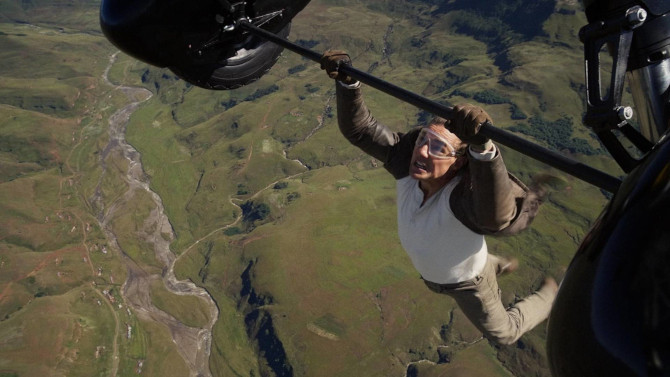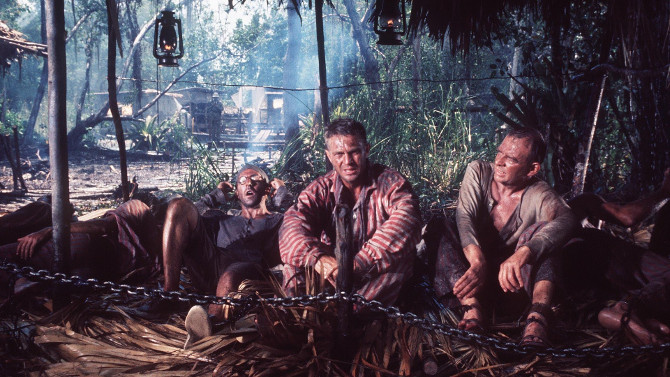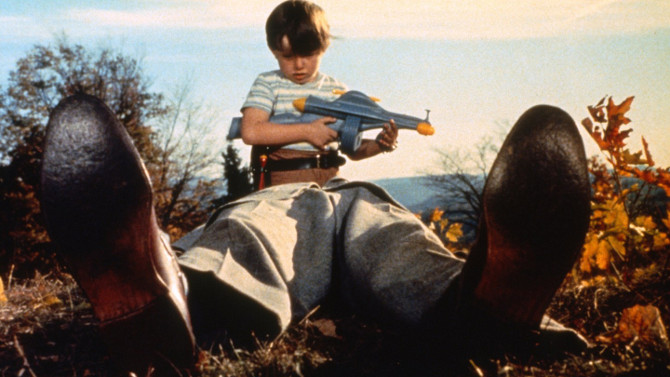
An Impossible Mission
How do you wrap up a franchise like Mission: Impossible? That is, if this even is the final installment... as they’ve made it sound (while at the same time, stars not named ‘Tom Cruise’ pipe up and suggest that might not be so). It has been twenty-nine years, with different writers and visionary directors – from twisty Brian De Palma and the action hair stylings of John Woo, to the lens flares of J.J. Abrams and animation expert Brad Bird, it was only about ten years ago that the franchise decided to opt for The Usual Suspects scribe Christopher McQuarrie for the final four. To return to that opening question once more, you could end with a Sopranos’ style cliffhanger, simply make another entertaining movie like the many before – like Everybody Loves Raymond did it with its final episode, or try to tie everything up in a neat little bow by bringing everything together as the Daniel Craig era did with James Bond. Well, it is definitely more along the lines of the latter example, with some distinct differences.
-

Prison Break, McQueen Style
PapillonAugust 21, 2016There are certain actors that have the ‘cool’ factor. Not the easiest thing to define, there is just something about their larger than life personas that attract us to them. One such actor is Steve McQueen. It seems that each role he chose further expanded his reign as a cool cat, with films like The Great Escape and Bullitt helping fuse together his characters with the real person – creating an image of a man’s man whose tall lean frame drove muscle cars through San Francisco during the week while escaping from Nazi concentration camps on the weekend. Another motion picture that epitomizes his persona is the 1973 prison drama Papillon. Based on the autobiography by French convict Henri Charrière, director Franklin J. Schaffner (Patton/Planet of the Apes) takes us on an epic ride as Charrière, whose moniker is Papillon (McQueen), as he has a vivid tattoo of a butterfly that can be found on the middle of his chest, is placed on a ship departing from France.
-

Betrayal, Revenant, Revenge
The RevenantAugust 19, 2016As of this past week, I have officially finished viewing all of last years Oscar Best Picture nominees. The sole one that slipped through my grasp prior to the Academy Awards was Alejandro G. Iñárritu’s epic The Revenant. Snagging Best Achievement in Cinematography (Emmanuel Lubezki), Best Actor in a Leading Role (Leonardo DiCaprio) and Best Director (for Iñárritu), the filmmaker transports us to the year 1823, placing us in the heart of the wilderness – more specifically, a piece of pre-government structured territory in the United States located close to the Dakotas.
-

Game of Drones
Eye in the SkyAugust 16, 2016Dealing with the moral quandary of a drone strike, Eye in the Sky captures the complex nature of pulling the trigger when you’re thousands of miles away from your target. Written by Guy Hibbert and directed by Gavin Hood, the story demonstrates the interconnectedness of military decision making in the twenty-first century. Colonel Katherine Powell (Helen Mirren) is running a complicated capture mission from a military base in England. She is attempting to seize high value targets from a terrorist group, including Susan Danford (Lex King) – a British citizen turned terrorist (on the top-ten most wanted list). After many long years, Colonel Powell finally has a bead on the elusive militants – who are making a stop in a safehouse in Nairobi.
-

A Trek to Ticonderoga
August 14, 2016Nestled in the heart of the Adirondacks, the cleverly named Trekonderoga is a highly unique comic convention. Located in Ticonderoga, New York, the event not only boasts celebrities, vendors, reminiscences, discussions and a perfect reincarnation of Star Trek’s USS Enterprise (built using the original blueprints from the series – which is celebrating its 50th year), but also features the rich history and striking natural surroundings at the heart of the small locale. Misty mountains, lush green forests, a rapidly flowing miniature waterfall, the impressive structure that is Fort Ticonderoga, historic buildings and other forms of beautiful nature are all found in the location that straddles both Lake George and Lake Champlain.
-

You’ll Dig Harry
The Trouble with HarryAugust 12, 2016I’ll let you in on a little secret. . . The Trouble With Harry is, well, he’s dead. Alfred Hitchcock directs this cheeky black comedy about a number of villagers who discover the body of a deceased man out in the woods in picturesque New England. Though it was an American film, Hitchcock adapts a very British story (after all, it is usually Europeans who can find comedy in death) for the screen. A project he desperately wanted to get made, it finally came to fruition in 1955. The first to stumble upon the body is a little scamp of a child named Arnie Rogers (Jerry Mathers of Leave It to Beaver fame).
-
Star Pick with BarBara Luna
 This Film ‘Rains’ SupremeSingin' in the RainAugust 10, 2016
This Film ‘Rains’ SupremeSingin' in the RainAugust 10, 2016Set in the late 1920s, Singin’ In the Rain captures the drastic and very abrupt change that occurred as the ‘talkie’ craze took off after the legendary film The Jazz Singer was released in 1927 – lampooning the transition with a melange of sharp satire, simple gags as well as show-stopping song and dance numbers (and some straight-forward audible dialogue, too). At CAPE Cornwall 2016, I had the pleasure of speaking with actress BarBara Luna, who has been working in the industry for sixty five years. Over the course of her intriguing career, she has worked with countless icons, including Spencer Tracy/Frank Sinatra (The Devil at 4 O’Clock), Peter Lorre (Five Weeks in a Balloon), Jimmy Stewart/Henry Fonda (Firecreek), to name but a few.

